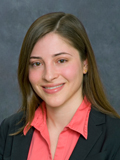Believe it not, you can still find a summer internship in June. Sure, many applications deadlines have passed, and many interns have started their jobs. But take heart in the fact that Career Services is still getting internship announcements from employers and hundreds of students finalize their summer plans in June. The internships offered to students in June are not even the dregs. As the graphic below shows, employers in a variety of industries hire their interns late.
An internship that’s available in June isn’t necessarily that different from those that hire earlier, but you do need adjust how you conduct your search a bit. Many of these internships are not posted on a job board (see pie chart below). Your search needs to be more proactive. You should identify employers and apply or inquire directly. You should reach out to contacts to get ideas or advice for where to look. You should follow up with employers you previously applied to. You should apply to lots of internships but also take care to send high-quality, tailored applications. (See the internships page for more guidance on any of this.)
Also, Career Services is here for you. If you are looking for something to do this summer, I’d encourage you to make an appointment to talk with a Career Services advisor soon. We can review your strategy, make an action plan, and also identify alternative ways to have a productive summer break. We can help you research employers in your field and point you to helpful alumni and other students. We can coach you on contacting employers to follow up on applications you already submitted. We can, of course, critique your resume and cover letters, do a practice interview, and offer feedback on your networking spiel. Come see us!


